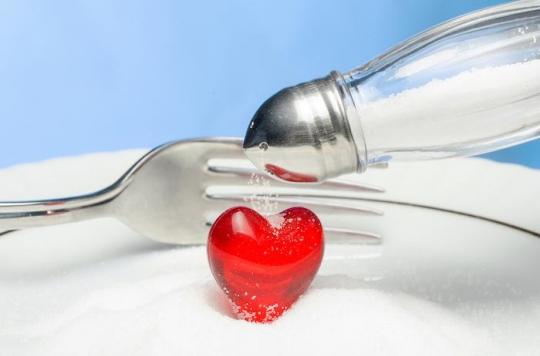A third of the French suffer from high blood pressure and half would not know it. Santé Publique France is concerned about the lack of progress in terms of diagnosis and warns of the risks involved, especially for women, who are treated much less than men.

Arterial hypertension, also called hypertension, remains misdiagnosed in France according to a study conducted by Public Health France and published in the Weekly Epidemiological Bulletin (BEH). A third of the French would be affected and half would not know.
Arterial hypertension is too high blood pressure in the arteries with the risk of damage to their walls due to the over-pressure. This phenomenon causes a stiffening of the arteries, which will then age more quickly. There is hypertension when the systolic blood pressure is greater than or equal to 140, or when the diastolic blood pressure is greater than or equal to 90. The first corresponds to the maximum value found during the contraction of the heart, the second corresponds on the contrary to the lowest value measured after releasing the heart.
Many French people are hypertensive who ignore themselves according to the latest epidemiological bulletin of Public Health France! https://t.co/QcjD4VCyyG pic.twitter.com/HMnL9KDAmn
– Infirmiers.com (@infirmierscom) April 24, 2018
A person with hypertension has a higher risk of cardiovascular events and kidney failure. There are not really any symptoms when you have high blood pressure, except in the case of a violent attack where there may be a gene or headaches. The diagnosis is usually made during a general medical consultation, or an organized screening.
Women less well treated as men
The institute conducted a survey between 2014 and 2016 on 2,169 French people aged 18 to 74. They find that men are more affected than women. They are 36.5% to suffer from it against 25.2% of women. By comparing their data to those collected in 2004, the researchers also found that hypertension is neither better detected nor better treated today.
In women, therapeutic management has even deteriorated. However, the risk of developing arterial hypertension is greater during certain hormonal periods of a woman: contraception with synthetic estrogen, pregnancy, menopause … Overall, a pregnant woman has a 10 to 15% increased risk of developing high blood pressure, as does one in two postmenopausal women. They are also at greater risk than men of having a cardiovascular or stroke. Hence the interest in intensifying screening sessions for women during these periods.
Risk factors
Certain factors increase the risk of high blood pressure. Excessive salt consumption, smoking, overweight, obesity, sedentary lifestyle, unbalanced diet but also professional stress. The disease can also be inherited, in case both parents are hypertensive, the risk of hypertension is high. Certain diseases can also increase the risk such as diabetes, cholesterol, hormonal imbalances or certain drug treatments. The risk of high blood pressure increases with age.
The average age of hypertensive people is 62 years. It is generally around the age of 50 that it appears. In France, it would affect 14 million people, 12 of whom are under treatment. According to World Health Organization, 1 in 3 adults in the world have hypertension, and the disease is thought to be responsible for 9.4 million deaths per year.
FIND OUR FULL ISSUE: High blood pressure, the silent threat

.
















